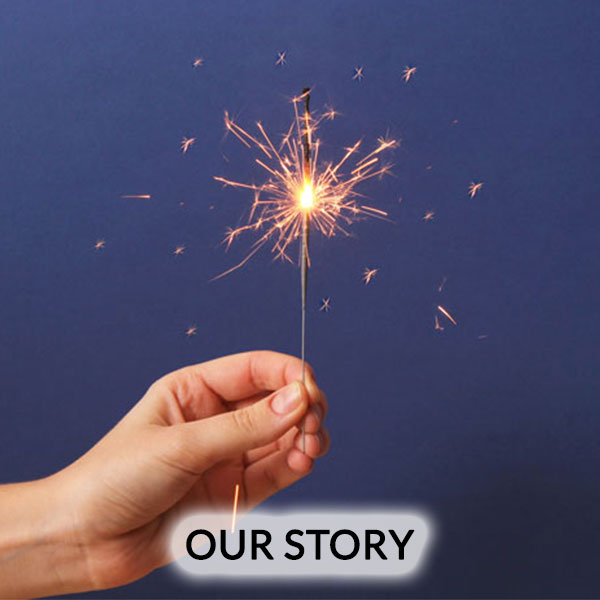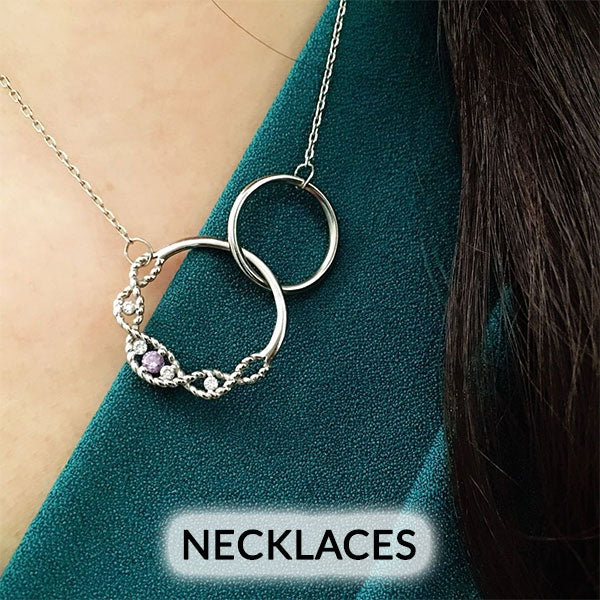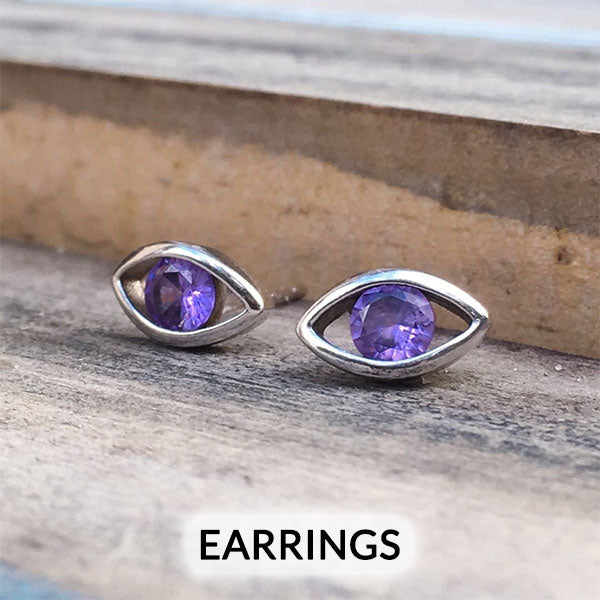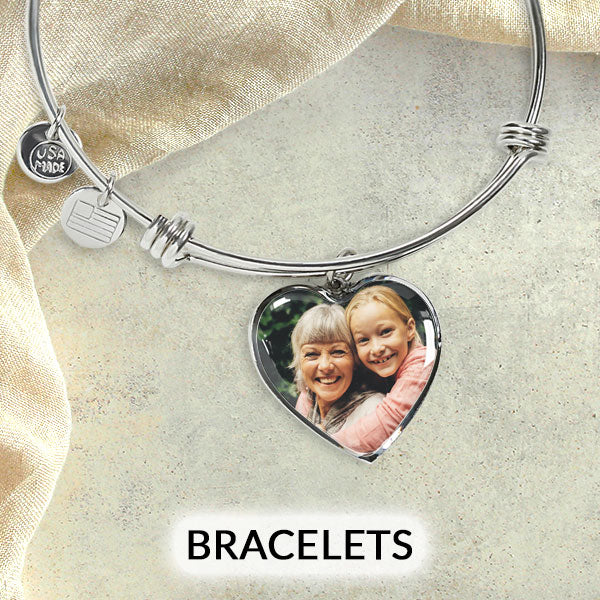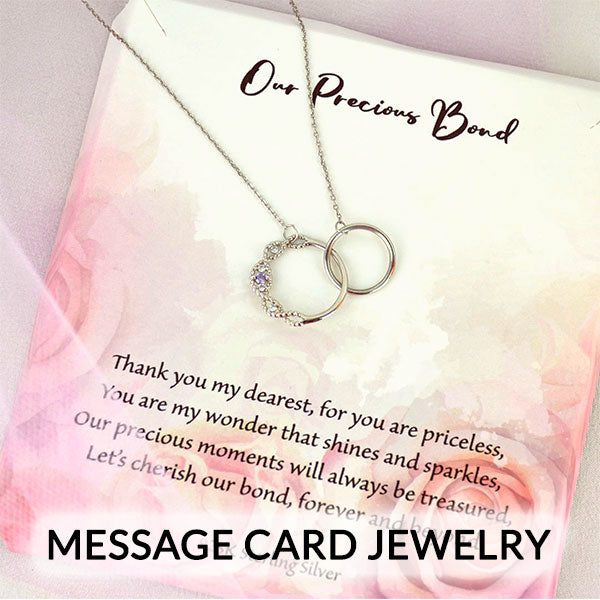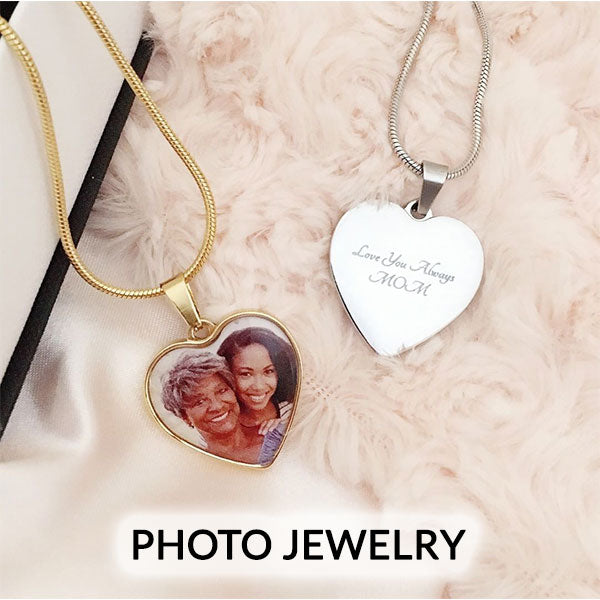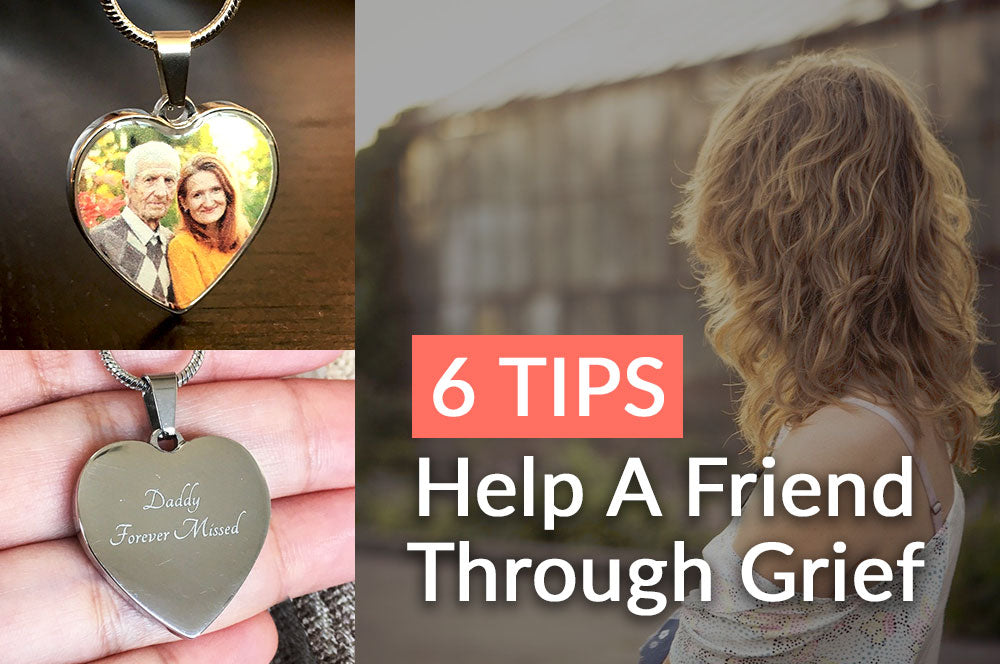
6 Tips With Real-life Advises From People Who Went Through It
This is our first post on how to support a friend who is grieving. We’ve been touched by some recent stories we've read, and we as WonderSpark wanted to have our share in making someone’s grieving easier by giving you very specific, real-life advises from people who’ve been through it, and a beautiful piece of memorial jewelry that will go a long way in remembering a special father.
Looking at so many people's stories, we fully understand that the stage of grief and loss is different and personal for everyone, yet all of them shared few very specific details about what they’ve expected from their friends or what their friends did that helped them ease the process.
Whether it was a recent or long time ago, we as friends have the responsibility to bring a new light of the everyday grieving and pain.
The family is mourning, the relatives are around, yet the house is empty and it seems like no one is looking after each other.
In times like this, be the best best friend you can be, by informing yourself about what your friend is or might be going through and do the best you can.
These bits of advice might seem generic and interconnected, but each of them carries a story of a different part and stage of the grieving process.
TIP 1: Let them know from the beginning that you are thinking of them and you are there for them
First, and most importantly, the beginning is the most painful. Let them know from the beginning and remind them as often as you can that you are there for them.
If you live nearby, check on them often, if you live far - call them, send text messages, send cards. Visit them when you have a chance. Many times grieving people feel alone and forgotten or being mistaken that they are good, only because they returned to work. No. Ask them how are they, how they feel. Ask them WHAT they need, not IF they need something.
✅ What you can do to help:
• Send or drop off cooked meals or groceries
• Send or give practical gift-cards or self-care gift cards
• Remember important days like death anniversary, their father's birthday, and any day they might feel extra sad than they already are and be with them physically or online, the time is what matters.
❤️ ELIZABETH REGENSBURGER-GONZALEZ said:
What helps me is to have someone, anyone, check-in and ask how I'm doing
“It's been strange since my dad's passing. Dear friends have vanished and complete strangers have become sisters that I speak to every day. I'm a new me in a new world. What helps me is to have someone, anyone check-in and ask how I'm doing... ask if I need any help... because if you ask me then I need to check in with myself and answer you. most days I don't know if I'm coming or going. If you care... then maybe I'll care. 'My dad cared so I cared. He's gone now... so show me that others care and it's worth it.”
TIP 2: Be with them when they need a break – and be with them when it gets real
Video credit: Megan Devine
As their friend and support, you need to know they will grieve for a very long time. But, they are going to need a break. They are going to need a new “normal”.
You are there for that reason – to be their break, not their burden.
Involve them in a relaxing activity, the kind they would or they used to like. A place they love, warm tea, or shopping.
Ask them what they would like to do, but never push them or diminish their pain.
Be their 'quiet time'. Give them all the time they need. Give them the feeling that they are safe with you if they want to open their hearts and share their emotions, or to be free to stay quiet.
Remember, everyone grieves differently.
✅ What you can do to help:
• Take them out for a meal, tea or coffee, or a walk in the park
• Accompany them to some social gatherings they are not comfortable going alone
• Sit in silence, if they like to, accept their grief days, months even years later
❤️ PATRICIA said:
Clear everything with your grieving friend first as what may seem like a good idea to you, it may be too much for them
“…One cousin took me out for a drive to a beautiful fall location, stopped for lunch and then browsed through a shop she knew I loved and it was the first time anyone had said, do you want to go out somewhere just to give you a change and some fresh air. She cleared everything with me first which is so important as what may seem like such a good idea to the person trying to help, it may be too much for the grieving person. The other cousin came and just sat and talked about so many things that Jim and myself did together. How many friends he had and that everyone loved him. There were some tears but there were also some smiles. She stayed for the whole day and promised she would be back the following week and perhaps we could go out if I was up to it. I was able to get some sleep for the first time without crying myself to sleep. Such a simple thing brought me such a time of comfort.”
❤️ CLAIR GREER said:
Be willing to listen while they pour out their grief even years later
“I've had several friends- both close and a little more distant- who have been willing to listen while I pour out all of my grief since my father died suddenly this year. It's different for everyone, of course, but for me, I found (and still do!) that at times I need to say everything I'm thinking before I find any kind of release or closure. It's too much information, too much big emotion, too much time, too much everything, but I will always be grateful for the dozen-plus people who have loaned me their ear without flinching away even once. Time, presence and care have meant the world to me."
TIP 3: Help them remember their father, instead of trying to make them forget
Many people who lost their father are saying “no one ever even mentions him around me, it’s like they are trying to erase him from my memory”.
And that’s why they avoid talking about him as well. But they still grieve, and they still feel the pain.
That's why letting them talk about their late father is the best thing you can do for them. Letting them know that you're acknowledging their grief and pain will make them more comfortable.
Ask them to tell you a story, a situation or emotion connected to their father, it will bring back good memories, and maybe a smile, too.
✅ What you can do to help:
• Look through old photos together.
• Help them make a personalized memory box where they can put their father's favorite belongings and reminders.
• Show them that you care with a personalized engraved photo heart necklace with the perfect picture and memory to remind them of him every day.

⭐⭐⭐⭐⭐ Kimberley. C - Remembering my dad
I recently lost my father and I'm so glad I can have him with me at all times. The photo looks really good and the delivery was fast. Thank you guys so much!
A little token of honor and memory in their father’s name will go a long way to help them ease their grief.
❤️ MARYLIN said:
Keep your father's face and memory close to your heart and eyes
"I lost my Dad when I was eleven and it has been so very hard since he passed. It has been over 50 years. I had two sons and always thought about how he would have enjoyed being a grandfather because I know he enjoyed being a Dad.
One day as I was working in my yard and my older son who was helping me clean the yard walked by me and I could see my Dad’s face in my son’s. I almost could not believe my eyes. I had never noticed it before. My son was 30 years old and getting older and he looked just like my Dad. It was like a gift from God. I could hardly believe my eyes. I think I just sat and stared at my son as if for the first time. I still miss my Dad more than anything but it is nice seeing him in my son. My son has his hazel colored eyes, and his very thick dirty blond hair. It is a miracle to be able to see his face again in my son’s."
TIP 4: Be practical in your help and help wherever help is needed
Whether it’s the first day of mourning or months or years after their loss, a true friend is there for their friends.
If there is anything your friend or their family is failing to do, you do it for them.
Whether the lawn needs to be mown, or their dishes had piled for a while, you don’t ask them if they need help. You just do what needs to be done at the moment.
Some people are too proud to say it, some are shy, and some won’t care at all. For these reasons, many people said: “the practical help was the best help”. For some were the groceries, for others was the cooking or helping with the house workload.
✅ What you can do to help:
• Help with house chores
• Offer to take care of their kids, so your friend can have some me-time alone
• If you are far, pay for house-cleaning services so they can take some free time.
❤️ LEANNE JONES said:
When there's a will, there's a way, and your help will be much appreciated
“My best friend drove 500 miles to just be here for me for 48 hours. She cleaned, cooked and did laundry and was just THERE.”
❤️ MELINDA VALENTE said:
There are so many things can be done, and surely you can do some of them
"... a very dear childhood friend of mine drove from Baltimore up to CT after my dad passed away so that she could be with me and attend the wake. While she was in town she brought over food for my family not once but twice, she also brought a stuffed animal for my son, and spent a long time at the wake with my son as well, talking to him and listening to him tell her all about this video game that he liked playing. She was there for my whole family and that meant so much to me. She also made that same drive this past summer when we had a memorial service for my dad. There was such love in those gestures - it meant so much to me."
TIP 5: While everyone else is expecting them to move on, you help them move forward with their grief
Video credit: Nora Mclnerny
More than often, people who lost someone close are unfairly mistaken for "moving on", "getting over" or the worst - "done grieving".
It's even more often when those people who lost their close ones are being told to move on and get over it.
As a friend, especially if you've never had a close loss experience, you need to have one thing in mind: the grief is never over, they won't move on, they are going to live with that loss forever.
Even if they've found a way to cope with their loss in a healthy and productive way, it doesn't mean they forgot.
Share with them the video above, it might help them in the way they experience the loss and grief.
❤️ E.RK said:
Create a new normal
“One of my friends very recently told me that once your "normal" has been disrupted, you don't go back to it, you can't go back to living normally, you instead create a new normal. This has stuck with me and I find that this video resonates with the thought. One can never move on from grief, from the pain of death, time doesn't heal, it just gives you patience.”
❤️ MOE said:
This video helped me realize I should move forward
"... My dad passed a year ago, and friends, family, and even neighbors just move on and that's it. The only person knows me just died. And when I confide to others, they don't stick around or even understand. And all I could do is remember the times' dad taught me to do stuff, all the times he made me mad, laugh, cry,... and all the stuff I have to figure out for myself is so hard to even when it's easy. Thanks to this video, I now know I don't have to move on, to stop griefing. I think I'll never stop, but I can move forward with memories with him.
TIP 6: If you think that nothing works, you can offer them help from therapists and grief counselors
It's very easy to give up when everything you've tried doesn't seem to work. But the challenge of the best friend is to go beyond any obstacle in order to help the friend in need.
When you feel that your friend is in need of therapy, support group, or grief counselor, offer them one, and offer them the best.
To help you with this matter, we made a list of experienced grief coaches, with very different therapy approaches, so you can find the one that suits your friend's personality.
✅ COACH #1: Megan Devine, a psychotherapist, writer, grief advocate, & communication expert dedicated to helping through the loss.
Megan helps people work through their grief in a very unique way, by challenging the grievers to 30 days of writing about their grief.
In this time, the grievers are able to deeply and creatively approach their grief, connect to a wider grieving community (if they choose so) for stronger support.
On her website, you can find written, audio and video material, as well as her book "It's Ok That You're Not Ok", that can help someone through the grieving process, or help you in helping someone who is grieving.
Video credit: Megan Devine
Martha Magee:
I have lost 12 major people in 6 short years including both my parents. This week my favorite uncle died and also my godfather. It all collapsed me. I have been leveled, chronically ill unable to get out of bed many days, and sick with a myriad of symptoms. Lately, I've been in a very dark and hopeless place because I feel completely alone. All the people who cared about me, who loved me, are gone. I’m not very good at loving me. And the people in my life now don’t seem to be either. That is a real bind.That video you did about how to talk to a grieving person is so brilliant. I wish that everyone in the world could watch it and learn. Thank you with all my 💔
✅ COACH #2: Lune Innate, esoteric healing arts teacher, master level practitioner, and spiritual content creator.
Her passion is empowering people who are on a path of personal and spiritual development by using practical and applicable methods to bring harmony to their lives while aligning with their Soul's desires of experience.
Video credit: Lune Innate
Kyla:
I feel so fortunate to have found this video. I lost my grandfather four years ago, and my grandmother recently last November in 2017, ever since I’ve found myself unable to really be at peace with their passing. My grandparents were my parents in a way, and I’ve missed them so much. This video helped me so much, I feel like I was able to connect with both of them in a way I haven’t in a very long time. I shed tears that I’ve bottled up for months, and I was able to send them the message of love and thankfulness for all that they did for me growing up. Thank you for that.
✅ COACH#3: Brett Larkin, an online yoga teacher, and yoga teachers' trainer.
For her, online means that her sessions will fit in your time and schedule, and the video calls and reviews mean you'll never feel you are alone in this. She created free YouTube guided meditation for loss and coping with grief in sadness, that can be accessed at any time.
Video credit: Brett Larkin Yoga
YogaMom:
Beautiful! This is a theme that has kept coming back to me in various ways through the last few years...holding space, not just for others but for myself to feel the uncomfortable feelings. It is surprisingly freeing, instead of making one sadder. It reminds me of a kinked hose that the water has stopped flowing through. Releasing the kink (negative emotion) suddenly allows it to continue to flow and move away, not stay. Namaste, Brett.
A Final Word From Us
This isn't a very happy subject, but it's part of everyone's life. If you have been fortunate to not have such a loss in your life, you might be able to help someone who does. Follow the grieving person's lead, and don't rush into any action if you don't feel comfortable with it.
But there's one thing that's easy to do: be there, be available, and listen more than you speak. Everyone grieves differently, and at their own pace and way. All you need to do is to acknowledge their loss. And not just on the first day, but weeks, months, years later on.
There might be a time when your grieving friend might not respond to your offer to help, and that's most probably because they need more space or time alone. Don't take it personally. Be open and accepting of their response and let them know you are there for them any time.
Keep checking on them, keep being the best friend you've ever been.

